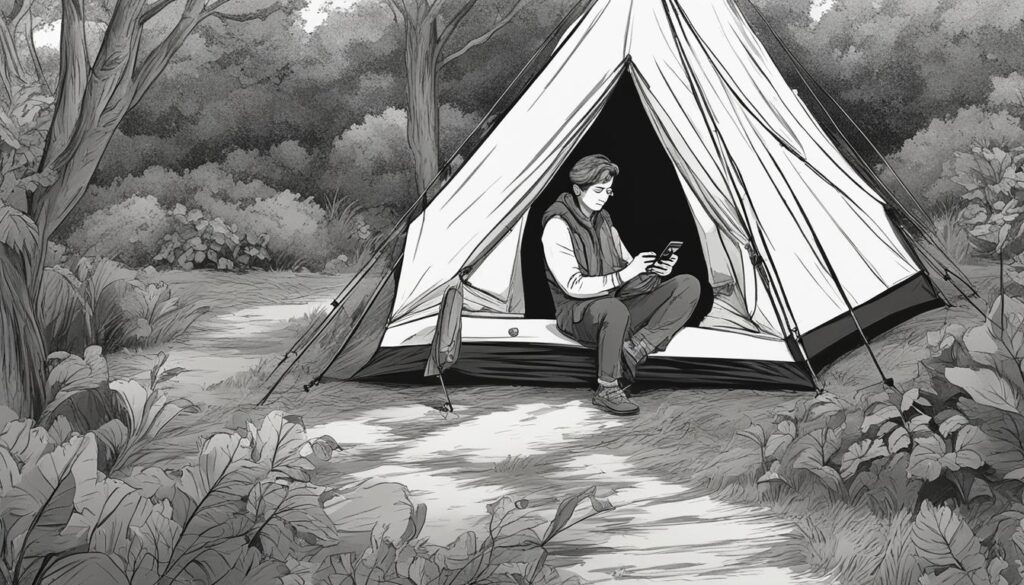Feeling uneasy around one’s father can be a challenging and perplexing experience. The dynamics within a family can greatly influence our emotions and interactions, and sometimes communication issues can lead to feelings of discomfort or unease.
There may be various reasons why you feel uncomfortable around your dad. It could be related to unresolved past trauma or experiences, which may have left lingering emotional wounds. These feelings can manifest in different ways, such as a sense of unease in your father’s presence, physical sensations of discomfort, or a heightened sense of vigilance and defensiveness.
If you’re experiencing these uncomfortable feelings, seeking counseling or therapy can be immensely helpful. A professional can help you explore and validate your emotions, while guiding you towards coping strategies and possible solutions. It’s essential to address these feelings and work towards creating a healthier dynamic within your family.
Key Takeaways:
- Feeling uncomfortable around your dad is a common experience that can arise from various factors including unresolved trauma and communication issues.
- Seeking therapy or counseling can provide a safe space to explore and validate these feelings, as well as offer guidance on coping strategies and solutions.
- It’s important to address these uncomfortable feelings and work towards establishing a healthier family dynamic.
- Remember, seeking help is a sign of strength, and with the right support, it is possible to navigate these emotions and improve your relationship with your father.
Understanding the Factors Contributing to Uncomfortable Feelings
Uncomfortable feelings around one’s father can be influenced by various factors. These may include past trauma, such as potential incidents of sexual abuse, although memories of such events may not always be clear. Unresolved emotions, such as anger, fear, or confusion, can also contribute to discomfort. Additionally, societal influences and cultural norms can impact one’s perception of the father-child relationship. A thorough exploration of family dynamics, including communication patterns and power dynamics, can help shed light on the sources of these uncomfortable feelings.
It is important to acknowledge that past trauma, unresolved emotions, societal influences, and family dynamics can all play a role in the development of uncomfortable feelings towards one’s father. While each person’s experience is unique, understanding these underlying factors can be a crucial part of the healing process.
Impact of Past Trauma
Experiences of past trauma, particularly incidents of sexual abuse, can have a profound influence on one’s relationship with their father. These traumatic events may result in feelings of fear, mistrust, and discomfort. It is important to note that the memories of such events may not always be readily accessible or clear, which can further complicate the healing process.
Unresolved Emotions and Discomfort
Unresolved emotions, such as anger, fear, or confusion, can contribute to the uncomfortable feelings experienced around one’s father. These emotions may be rooted in past interactions, conflicts, or unmet needs within the father-child relationship. Addressing and processing these emotions can be essential in finding a sense of resolution and healing.
Influence of Societal Norms
Societal influences and cultural norms can impact one’s perception of the father-child relationship. Expectations and gender roles imposed by society can create pressure and discomfort for both the child and the father. Challenging these norms and redefining the dynamics within the relationship can be a necessary step towards creating a healthier and more supportive environment.
Exploring Family Dynamics
Family dynamics, including communication patterns and power dynamics, can significantly contribute to the development of uncomfortable feelings towards one’s father. Identifying underlying dynamics, such as control, manipulation, or emotional neglect, can be crucial in understanding the origins of discomfort and working towards healthier interactions.

Understanding the factors that contribute to uncomfortable feelings around one’s father is essential for personal growth and healing. By recognizing the impact of past trauma, unresolved emotions, societal influences, and family dynamics, individuals can begin to navigate and address these issues in a healthy and effective manner.
Coping Strategies and Seeking Support
Coping with uncomfortable feelings around one’s father requires a multi-faceted approach. It is crucial to recognize and validate feelings without judgment. Seeking professional help from a therapist or counselor who specializes in trauma or family dynamics can provide a safe space for exploration and guidance.
Setting boundaries and having open conversations about the discomfort can help establish a sense of safety. Engaging in self-care activities, such as exercise, meditation, or spending time with supportive individuals, can contribute to emotional well-being.
Additionally, connecting with support groups or online communities can provide validation, understanding, and a sense of belonging. Remember, seeking help is a sign of strength, and professional support can assist in navigating these challenging emotions.

| Coping Strategies and Seeking Support |
|---|
| Recognize and validate feelings without judgment |
| Seek professional help from a therapist or counselor specializing in trauma or family dynamics |
| Set boundaries and have open conversations about the discomfort |
| Engage in self-care activities for emotional well-being |
| Connect with support groups or online communities for validation and understanding |
Conclusion
Feeling sexually uncomfortable around one’s father is a deeply challenging and distressing experience. It is crucial to acknowledge that you are not alone and support is available to help you navigate these complex emotions. Seeking professional help is an important step towards healing and finding effective strategies for coping.
Validation of your feelings is essential. Recognizing and acknowledging the discomfort you are experiencing is the first step towards understanding and addressing it. Speaking with a therapist or counselor who specializes in trauma or family dynamics can provide valuable guidance and tools to help you cope and heal.
Establishing boundaries is another crucial aspect of self-care. Setting clear limits on what feels acceptable and comfortable in your relationship with your father can help create a sense of safety and empower you in your interactions. Engaging in self-care practices, such as exercise, meditation, or spending time with supportive individuals, can also contribute to your overall emotional well-being.
Remember that you are not alone on this journey. Connecting with support groups or online communities can provide a sense of understanding, empathy, and belonging. Sharing your experiences and hearing from others who have gone through similar situations can be incredibly validating and supportive.
FAQ
Why do I feel uncomfortable around my dad?
Feeling uncomfortable around your dad can stem from various factors, including unresolved trauma, past experiences, or unresolved emotions. It may also be influenced by family dynamics and communication issues. Seeking counseling or therapy can help explore these feelings, validate them, and provide guidance on coping strategies and possible solutions.
What are the factors that contribute to uncomfortable feelings?
Uncomfortable feelings around your dad can be influenced by various factors. These may include past trauma, such as potential incidents of sexual abuse, although memories of such events may not always be clear. Unresolved emotions, such as anger, fear, or confusion, can also contribute to discomfort. Additionally, societal influences and cultural norms can impact your perception of the father-child relationship.
How can I cope with uncomfortable feelings and seek support?
Coping with uncomfortable feelings around your dad requires a multi-faceted approach. It is crucial to recognize and validate the feelings without judgment. Seeking professional help from a therapist or counselor who specializes in trauma or family dynamics can provide a safe space for exploration and guidance. Setting boundaries and having open conversations about the discomfort can help establish a sense of safety. Engaging in self-care activities and connecting with support groups or online communities can also contribute to emotional well-being.
What should I do if I feel sexually uncomfortable around my dad?
Feeling sexually uncomfortable around your dad is a complex and distressing issue. It is essential to remember that help and support are available. Recognizing and validating these feelings is an important first step. Seeking professional guidance can provide necessary tools and strategies for coping and healing. Setting boundaries, engaging in self-care practices, and connecting with support groups can contribute to emotional well-being. Remember that you are not alone, and with the right support, it is possible to navigate these uncomfortable feelings and create a healthier relationship with your dad.

